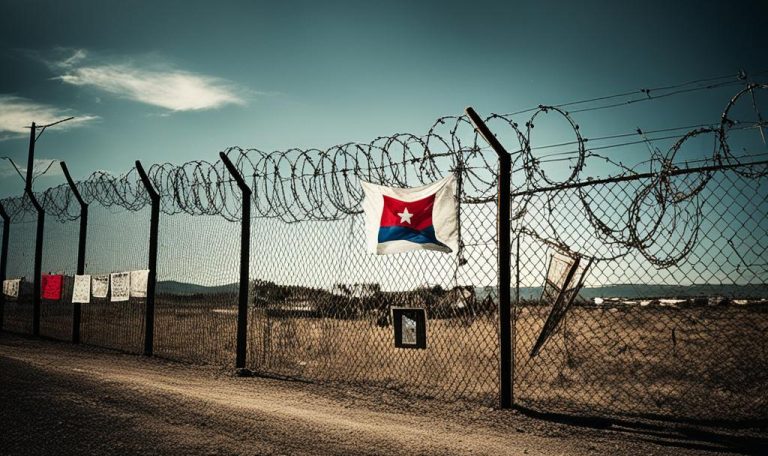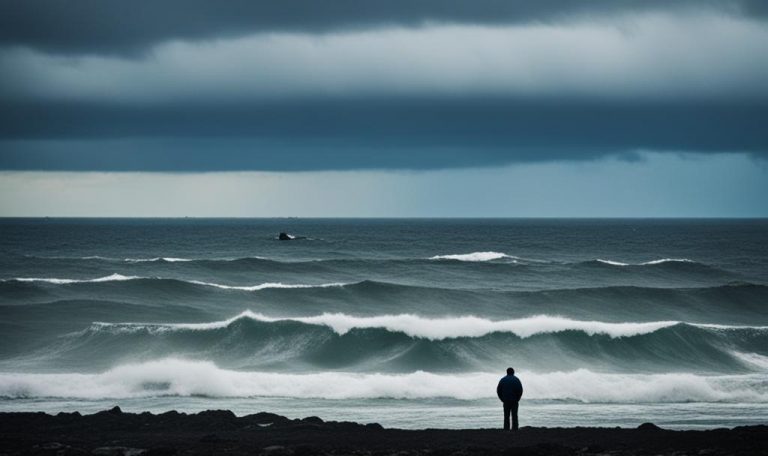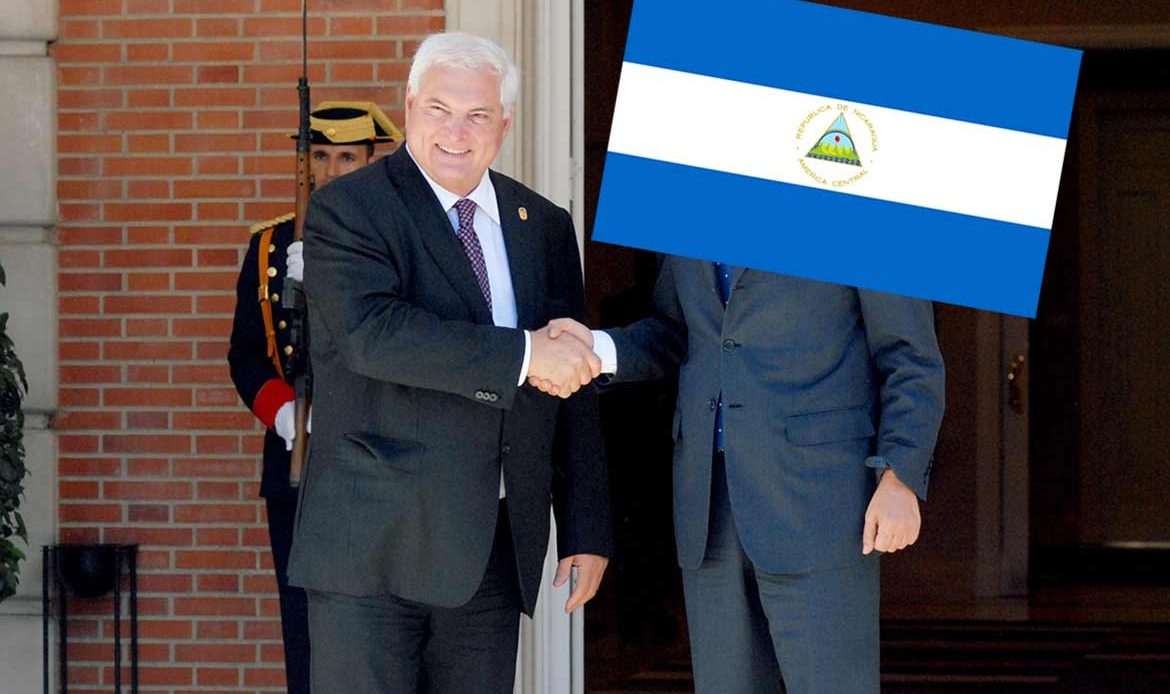Nicaragua Asylum was granted to former Panamanian President Ricardo Martinelli, who recently lost an appeal against his almost 11-year prison sentence for money laundering. Seeking asylum at the Embassy of the Republic of Nicaragua in Panama, Martinelli claimed political persecution and imminent danger, which led to Nicaragua granting his request. The decision comes amid Martinelli’s campaign for the upcoming presidential election in Panama.
As the news of Martinelli’s asylum spreads, it has stirred controversy and denials from the Panamanian government. While Nicaragua and Martinelli’s spokesperson insist on political persecution, Panama’s foreign ministry has clarified that they have only informed the authorities of Nicaragua’s decision without taking further action.
Despite his legal troubles, Martinelli maintains his popularity in Panama according to polls. His disqualification from the presidential race is expected to be formalized by the Electoral Tribunal, leaving candidates like former President Martín Torrijos and current Vice President José Gabriel Carrizo to contest the upcoming election.
Nicaragua’s decision to grant asylum to Martinelli aligns with its history of sheltering former Central American presidents and senior officials facing legal challenges. Previous recipients of asylum include former Salvadoran leftist presidents Mauricio Funes and Salvador Sánchez Cerén. This action further highlights Nicaragua’s commitment to providing refuge for those seeking protection.
Key Takeaways:
- Former Panamanian President Martinelli has been granted asylum in Nicaragua due to political persecution and perceived danger to his life.
- Controversy surrounds the decision, with Panama’s government denying reports of granting a safe passage for Martinelli’s departure.
- Martinelli’s legal troubles and disqualification from the presidential race impact the upcoming election in Panama.
- Nicaragua has a history of granting asylum to former Central American leaders, highlighting its commitment to provide refuge.
- The granting of asylum raises questions about the implications for Martinelli’s involvement in Panama’s political landscape.
Asylum Granted Due to Persecution and Imminent Danger
The Nicaraguan foreign ministry has confirmed that former Panamanian President Ricardo Martinelli requested political asylum in Nicaragua due to the imminent danger to his life. According to Martinelli’s spokesperson, they received credible information suggesting that there were plans to imprison him with the intention of harming or killing him. Martinelli’s lawyer also supports his claim, citing information from individuals working directly in the Presidency who have confirmed the existence of these threats.
In Martinelli’s pursuit of political asylum, he asserts that he is a victim of political persecution, which puts his life at risk. This grave situation compelled him to seek refuge in the neighboring country of Nicaragua.
“I have been hounded and prosecuted for purely political reasons. My life is in imminent danger, and I had no choice but to request asylum in Nicaragua,” said Martinelli during a recent press conference.
The decision to grant Martinelli political asylum underscores the gravity of the threats facing him and the concerns about his safety. This development has significant implications for both Panama and Nicaragua and raises questions about the power dynamics and political landscape in the region.

Political Asylum in Panama and Nicaragua
| Panama | Nicaragua | |
|---|---|---|
| Granting Asylum History | No history of granting asylum to foreign political figures. | History of granting asylum to former Central American presidents and officials. |
| Reason for Granting Asylum to Martinelli | N/A | Imminent danger to his life due to political persecution and threats. |
| Reactions | Denial of granting safe passage for Martinelli to leave the country. | Confirmation of the asylum decision and commitment to ensure Martinelli’s safety. |
The table presents a comparison between the asylum policies and reactions of Panama and Nicaragua. While Panama has no previous history of granting asylum to foreign political figures, Nicaragua has demonstrated a willingness to provide refuge for those facing legal troubles.
The decision to grant political asylum to Martinelli has generated controversy and sparked discussions about the role of political persecution and the protection of human rights in the region.
Asylum Decision Sparks Controversy and Denials
The decision to grant asylum to Martinelli has sparked controversy. While the Nicaraguan government and Martinelli’s team assert that the asylum was granted based on his claim of political persecution, the Panamanian government has denied reports of granting a safe passage for Martinelli to leave the country. Panama’s foreign ministry clarified that they have only informed the competent authorities about Nicaragua’s decision and have not taken any further action.
“We are aware of the asylum decision made by Nicaragua for ex-President Martinelli. However, we want to clarify that we have not granted any safe passage for Martinelli to leave the country,” stated the Panamanian foreign ministry spokesperson.
Despite the denial, debate surrounding the asylum decision continues to unfold. Critics argue that granting asylum to Martinelli undermines Panamanian justice, as he is facing a significant prison sentence for money laundering. Supporters of the decision, on the other hand, believe that Martinelli’s claim of political persecution is valid and that he deserves protection.
Controversial Asylum Decision
The asylum decision by Nicaragua has raised eyebrows and triggered discussions about its implications. Some individuals question the motives behind granting asylum to a former president accused of corruption and money laundering. They argue that the political climate in Nicaragua and its strained relationship with Panama influenced the decision.
Furthermore, critics of the asylum decision argue that it sets a dangerous precedent, suggesting that corrupt politicians can seek refuge in other countries to evade justice. They believe that an asylum grant should only be given to individuals facing legitimate threats to their safety and well-being.
Concerns about Justice and Transparency
The controversy surrounding Martinelli’s asylum grant extends beyond the Panamanian government’s denial of facilitating his safe passage. Many citizens express concerns that his extradition trial and appeal process were not carried out with adequate transparency and fairness. They question the independence of the judicial system and fear that powerful figures can influence legal outcomes.
Moreover, opponents argue that Martinelli’s asylum request diverts attention from more pressing issues in Panama, such as poverty relief, education, and healthcare reform. They believe that the focus should be on building a stronger and more equitable society rather than engaging in political battles.
Public Opinion Divide
The grant of asylum to Martinelli has resulted in a polarized public opinion. Proponents of the decision argue that it upholds principles of human rights and protects individuals from persecution by corrupt power structures. They believe that Martinelli’s case highlights the need for international cooperation and assistance in safeguarding political dissidents.
However, critics express concerns that granting asylum to Martinelli undermines the rule of law and sends a message that influential individuals can evade justice with impunity. They emphasize the importance of holding elected officials accountable for their actions, reinforcing faith in democratic systems.
Political Ramifications
The asylum decision has significant political ramifications, as it comes at a time when Panama is preparing for the upcoming presidential election. Martinelli’s candidacy, along with his legal troubles and popularity, adds complexity to an already competitive race.
Political analysts speculate that Martinelli’s disqualification from the race, which is expected to be formalized by the Electoral Tribunal, may ignite further controversy and debates about the treatment of former presidents and their involvement in politics. The outcome of these discussions may shape the political landscape in Panama for years to come.

Martinelli’s Legal Troubles and Popular Support
Despite being sentenced to 128 months in prison and fined $19 million for money laundering, former Panamanian President Ricardo Martinelli continues to enjoy significant popularity in Panama. According to recent polls, many citizens still support his political aspirations despite his ongoing legal battles.
In the upcoming presidential election, Martinelli faces competition from other candidates including former president Martín Torrijos, who is seeking a return to power, and José Gabriel Carrizo, the current vice president.
Martinelli leads the Realizando Metas party, a significant political force in Panama. However, his disqualification from the race is expected to be formalized by the Electoral Tribunal, given his prison sentence and the associated legal issues.
Martinelli’s strong following and the impact of his candidacy on the political landscape make for an interesting and closely watched electoral contest in Panama.
Nicaragua’s History of Granting Asylum
Nicaragua has established a track record of providing asylum to former Central American presidents and senior officials facing legal troubles. This commitment to offering refuge to individuals in need of protection demonstrates Nicaragua’s humanitarian efforts and willingness to assist those who claim persecution.
Among the past recipients of asylum are former Salvadoran leftist presidents Mauricio Funes and Salvador Sánchez Cerén, both of whom sought shelter in Nicaragua. Their cases highlight the country’s commitment to supporting leaders who face political and legal challenges.
In line with this established precedent, Nicaragua has granted asylum to former Panamanian President Ricardo Martinelli. By extending this protection to Martinelli, Nicaragua reiterates its commitment to providing sanctuary and safeguarding the rights of individuals in similar predicaments.
Previous Central American Asylum Cases in Nicaragua:
| Recipient | Position | Country |
|---|---|---|
| Mauricio Funes | Former President | El Salvador |
| Salvador Sánchez Cerén | Former President | El Salvador |
Conclusion
Former Panamanian President Ricardo Martinelli has been granted asylum in Nicaragua in the midst of political tensions in his home country. After losing his appeal to overturn a prison sentence for money laundering, Martinelli sought refuge in the Embassy of the Republic of Nicaragua in Panama and was granted asylum. This decision by the Nicaraguan government marks another development in the ongoing political landscape in Panama.
The granting of asylum to Martinelli has sparked controversy, with the Panamanian government denying reports of facilitating his safe passage out of the country. While Martinelli claims his asylum is based on political persecution, critics question the motivations behind the decision.
Despite the controversy, Martinelli maintains strong popular support in Panama. As the country prepares for an upcoming presidential election, the impact of Martinelli’s candidacy and legal troubles on the political landscape remains uncertain.
FAQ
Why did Nicaragua grant asylum to former Panamanian President Ricardo Martinelli?
Nicaragua granted asylum to Ricardo Martinelli based on his claim of political persecution and imminent danger to his life.
What were the reasons behind Martinelli’s request for asylum?
Martinelli’s request for asylum was prompted by his belief that his life was in danger, with plans to imprison him and potentially harm him.
What has been the response to Nicaragua’s decision to grant asylum to Martinelli?
The decision has sparked controversy, with the Nicaraguan government and Martinelli’s team emphasizing political persecution as the reason, while the Panamanian government denies granting safe passage for him to leave the country.
What are Martinelli’s legal troubles?
Martinelli has been sentenced to 128 months in prison and fined $19 million for money laundering.
How popular is Martinelli in Panama?
Despite his legal troubles, Martinelli remains popular in Panama according to polls.
Has Nicaragua granted asylum to other Central American leaders in the past?
Yes, Nicaragua has a history of granting asylum to former Central American presidents and senior officials facing legal troubles, including Mauricio Funes and Salvador Sánchez Cerén from El Salvador.



